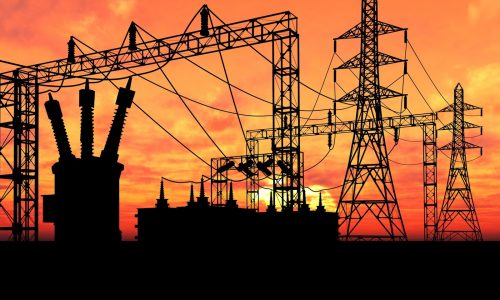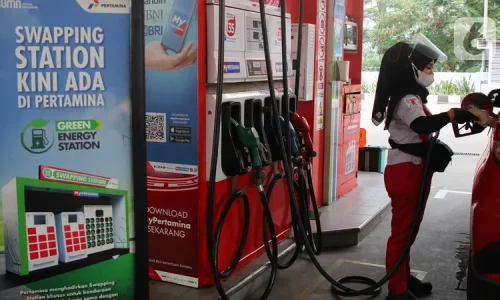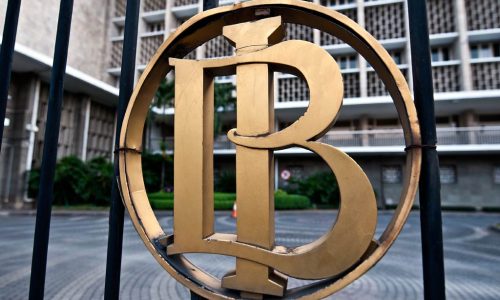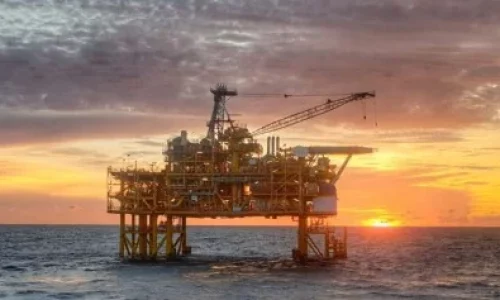The Upstream Oil and Gas Regulatory Task Force (SKK Migas) has revealed the reason for drop in the country’s oil production, blaming the Covid-19 pandemic and old facilities as the culprit.
Head of Program and Communication Division of SKK Migas, Hudi D. Suryodipuro, said that like other business sectors, the upstream oil and gas industry was greatly affected by the Covid-19 pandemic. The pandemic had not only caused the upstream oil and gas operations to be much less optimal due to mobility restrictions, but also reduced the upstream oil and gas investment so that there was a significant gap with the investment target in the long term plan (LTP) program that had been prepared.
“The upstream oil and gas industry has a long cycle of around seven years from the discovery of an oil and gas field until it can be produced. As the pandemic hit, investment decreases, so that the cycle will get longer. Although the Covid-19 pandemic has ended, its impact on the performance and operations of upstream oil and gas is still being felt,” Hudi said on Wednesday, April 24, 2024.
He added that old facilities at some fields that are significant contributors to production also contributed to decrease in oil production. He cited facilities at PHE ONWJ, which have existed since 1966 and continue to be used today.
“Nowadays, for fields with old facilities, the conversation is no longer about production capability or whether production can be increased, but on how to prevent unplanned shutdowns from happening because if there is a leak, the impact is that production in the field will be stopped and as a result, production and lifting will decrease,” Hudi said.
Regarding the steps taken by SKK Migas to reduce the decline rate and optimize national oil and gas production, Hudi said that SKK Migas and Oil and Gas Cooperation Contract Holders (KKKS) continue to increase workover activities, well service, and drilling of wells.
Hudi said that these activities continue to increase in significant numbers. For workover activities, there were 566 wells in 2021, which increased to 834 wells in 2023, or an increase by 47.3 percent. Likewise, well service activity in 2021 were recorded at 22,790 activities, which reached 33,412 in 2023 or an increase by 46.6 percent. He added that for 2024, workover is targeted at 905 wells and well service at 35,690 activities.
Furthermore, Hudi said that efforts to maintain optimal production were also carried out by increasing the drilling of development wells. In 2021, the realization of drilling of development wells was 480 wells, which increased to 799 wells in 2023 or an increase by 66.5 percent.
“The hard work of SKK Migas and KKKS can be observed from the trend of oil and gas production that is starting to improve, which is marked by a decline rate that in 2023 is only 1.1 percent compared to the decline rate from 2016 to 2022 which averaged at around 5 percent. Even for gas, in 2023 there has been an decline rate of 2.1 percent,” he said.
He went on saying that the production realization in April 2024 has shown an increasing trend at 581 thousand barrels.
“We expect the support from related stakeholders, so that all programs such as well reactivation, drilling, well service and others can be implemented, and eventually the upward production trend can be maintained so that at the end of this year oil production is even higher than today,” Hudi said.
To encourage additional oil and gas production, SKK Migas is currently accelerating the completion of upstream oil and gas projects, which is targeted at 15 upstream oil and gas projects in 2024 that will expectedly provide additional oil production of 46,837 barrels of oil per day (BOPD) and additional gas production of 351 million cubic feet per day (MMSCFD) and 192 MT/D of LPG.
To support the sustainability of the upstream oil and gas industry in the long term, Hudi said that SKK Migas is encouraging the acceleration of each discovery so that it can be immediately put into production, including how to make giant discoveries in North Ganal and Layaran-1.
“This is our effort to not only pursue short-term targets, but also ensure the contribution of the upstream oil and gas industry in the long term to support energy security and national development,” he concluded.









